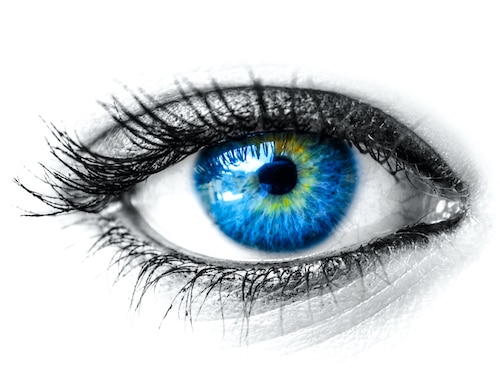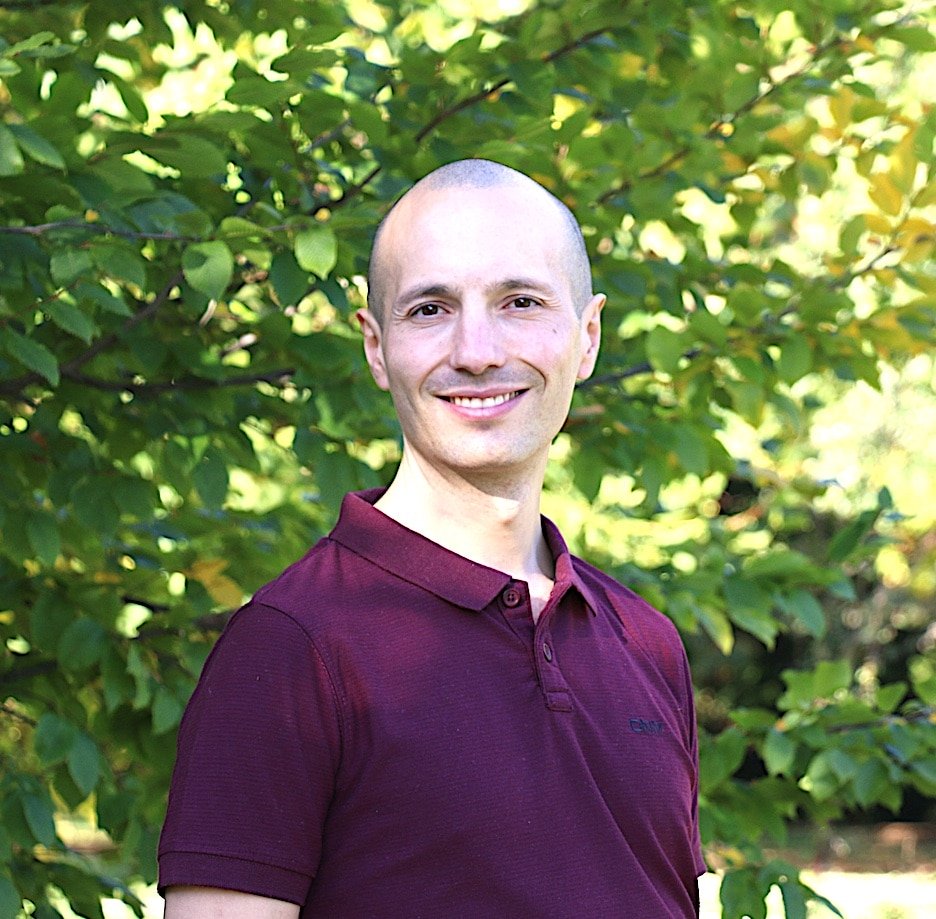
Hypnosys
Classical & Ericksonian
Hypnosis is an altered state of consciousness allowing you to act on your unconscious mind.
Known since the dawn of time, hypnotic trance is natural and has a profound effect on your habits, fears, phobias and other “automatic” behaviors.
Hypnotherapy is the use of hypnosis for therapeutic purposes only. Everyone is hypnotizable, hypnosis is a state that is learned through repeated practice.
Hypnosis, what symptoms ?
Stress
The first benefit of hypnosis is to generate a state of deep relaxation. It therefore helps to improve any condition affecting stress, anxiety, anxiety attacks, etc.
Quit smooking
In 90% of cases, hypnosis allows you to quit smoking in one session! It may seem strange when you have been addicted for years, and yet!
Éjaculation précoce
A problem specific to men and often taboo, premature ejaculation comes above all from the unconscious. Hypnosis allows you to regain normal functioning, pleasure and satisfaction.
Shyness
Stage fright, speaking in public, approaching a person, shyness is a very annoying problem and limits our quality of life. Hypnosis is a powerful tool for building self-confidence!
Phobias
Phobias are very disabling when they are strong. However, in most cases, 2 hypnosis sessions are enough to eradicate them.
Sleep
If hypnosis works, it is above all thanks to its impact on the autonomic nervous system. A few sessions are enough to find a good rhythm, sometimes associated with lifestyle changes.
Benefits of hypnosis
- generates results where sometimes nothing works;
- is a brief therapy often requiring only one to three sessions (depending on the case);
- is a natural state of consciousness; that you experience on a daily basis;
- brings you into a very regenerative state of deep relaxation;
- is always more effective from session to session (reinforcement of the state);
- makes you autonomous in your well-being thanks to self-hypnosis;
- is 100% secure, only the changes you want can be made.
- is a simple, gentle technique accessible to all;
- Deep and restorative sleep.
Hypnosis is a powerful tool necessary for any real inner transformation.
Anyone experiencing extraordinary success uses hypnosis consciously or unconsciously.

Why hypnosis?
Because 95% of our life is directed by our unconscious.
Before and after sleep, driving, at a concert, watching TV, talking with friends, at work… the state of hypnosis is there all the time, we just don’t pay attention to it.
How a session works
Hypnotherapy is not magic; you retain full control. Here is the course of a session:
The sessions last between 1h15 (but can slightly overflow).
Cedric Abeck
Hypnotherapist
Always passionate about personal development, hypnosis is for me a fabulous tool that has transformed my life. I particularly appreciate it because it stimulates essential values, both in the hypnotherapist and the hypnotized, such as:
- the ability to lead us to live in the present moment;
- the necessary trust in ourselves, others and the unconscious functioning of life;
- attentive listening, sharing and human exchanges;
- the notion of humility and self-surrender to something beyond us. genuine changes bringing us closer to the essentials;
Today, it is all this depth that I try to convey through the sessions and our Pro hypnosis training.
My Trainings:
- Ericksonian Hypnosis Practitioner, Lyon (France)
- Ericksonian Hypnosis Technician, Lyon (France)
- NLP practitioner and Ericksonian, John Grinder, London
- Master Coach, Behavioral Coaching Institute, Bangkok Traditional
- Hypnosis NGH, Geneva

Testimonials
Book now
Hypnosis Discovery workshop 10.- CHF
Hypnosis interests you but you don’t dare yet? Would you like to know what hypnosis can do for you? Take part in our hypnosis discovery session and learn more! (session in french)
FAQs Hypnosis
FIRST_HIDDEN_CLOSE_REST
How many sessions are needed ?
Sometimes a hypnosis session can be enough to make a phobia go away, help a person quit smoking or reduce a state of anxiety.
Other times a longer follow-up may be necessary but we rarely exceed three sessions. There is no rule or format; hypnosis working on the unconscious, any systemic approach is a blind concept that will work for one case but not another.
Of course, any serious hypnotherapist will make sure to help each person as soon as possible.
Are the session reimbursed ?
By personal ethics, I do not wish to participate in a system that relieves human beings of responsibility for their health and makes them dependent on institutions.
Also, my interest is in getting paid for the people I help quickly, not the other way around like in the medical system. My sessions are therefore not reimbursed by supplementary insurance.
In addition, hypnosis being a serious approach, the financial implication is in itself an asset stimulating the unconscious and maximizing the results, knowing that the results are fast and that for a majority of disorders (ex: smoking cessation, phobias, anxiety attacks), the number of sessions is often very low (between 1 and 3 sessions).
Of course, times being what they are, if you are sincere in your approach but cannot afford it, contact me and we will discuss it.
I understand that hypnosis prices in Geneva are sometimes substantial for some. The financial aspect should in no way be a barrier to your well-being.
Can I be controlled under hypnosis?
There is very often this common idea of being manipulated and where the hypnotist would risk doing “certain things” under hypnosis. This is absolutely false. This idea comes from hypnosis shows which let’s remember are shows and prepared shows. Even if people are selected, they have always chosen to be there and therefore have given their consent to participate.
Also, in any show people will do what they are told once on stage! Hypnosis is a state of consciousness, with strong unconscious stimulation. It is therefore only possible to suggest what YOU want. Watching television, you always go under hypnosis, do you do everything that is suggested to you?
Although the fear of letting go is common, it is completely inappropriate for a hypnosis session. Indeed, the unconscious having the role of protecting you and the conscious mind being always there to watch, it is impossible to influence you on things that you do not want.
Hypnotherapy is one hundred percent safe, natural, and totally respectful with the changes you want.
Is hypnosis dangerous ?
There is absolutely NOTHING to fear from hypnosis! Hypnosis is a natural daily process of the body that you unknowingly step into. For example when you are engrossed in an exciting novel, film, music, when you lose track of time while doing a job or when you are fascinated by a particularly charismatic speaker.
In a hypnotherapy session, the only difference is that the state of hypnosis is induced consciously and for a specific purpose. Being afraid of hypnosis is as stupid as being afraid of sleep or breathing.
The negative image of hypnosis comes mostly from television misinformation but is no more real than vampires and werewolves!
=> More information on our article “Dangers of hypnosis, really?”
Am I conscious during the session?
Yes. Hypnosis is a state of intense inner focus generating calm and relaxation. If you don’t move under hypnosis, it’s simply because it’s extremely pleasant. But at any time you can come out of hypnosis if you wish, talk or do anything else.
It is true that the mind comes and goes, “floats” but it always does when you relax. Another opposite, the state of hypnosis generates a high unconscious receptivity and sensitivity to what is happening around you, such as when you drive for example.
FIRST_HIDDEN_CLOSE_REST
Am I speaking under hypnosis?
No, it is not necessary to speak under hypnosis, only if you are asked to do so or if you feel the need to do so. In the case of a hypnotic regression, yes you are asked for indications in order to guide the hypnotherapist, but you are always aware of them.
Do I remember everything after the session?
Yes. Then, depending on your state of well-being, you may forget a lot of things, but this is common in everyday life. It is possible to have amnesia, such as after a dream in the morning. Some dreams follow us all day for others, we don’t even remember having dreamed.
Can hypnosis cure everything?
It would not be fair to say that hypnosis can solve everything. Nevertheless, due to its physiological nature, hypnosis cures many disorders, symptoms and even diseases. Although it has a “magical” and extraordinary side to it, hypnosis works better with some things than others, depending on the place, the time, the individual and the therapist.
Hypnosis is a precise technique that should be used sparingly and with the consent and goodwill of the patient. So, if you’re like some people who sometimes have funny requests, don’t think you can solve all your problems with hypnosis, such as hypnotizing your children to keep quiet or do their homework!
Hypnosis works yes, quickly yes, creates profound changes yes, but must be used as any tool, correctly and in good doses.
Why choose hypnosis ?
Because your life is 95% determined by your unconscious and by communicating with it through the natural means of hypnosis, it can dramatically improve your quality of life.
Hypnosis works on the emotions; emotions which are in most cases the origin of disorders, disorders or illnesses. Hypnosis therefore allows groundwork for concrete changes. Hypnosis helps you break through the ego barrier, often responsible for inner conflict, and teaches you how to let go.
Hypnosis or hypnotherapy has many benefits including the following:
- The changes are made quickly with full or partial results from the first sessions.
- Since hypnosis is a natural physiological state, the more you practice, the better the results.
- You are working on profound changes leading to permanent results.
- No need for conscious work of events, no need for understanding, no psychoanalysis.
- The hypnotherapist avoids interfering in your private life and does without any context if possible.
- You take charge of your health through self-hypnosis and learn to manage your states of consciousness.
- Hypnosis is one of the best ways to relax and reduce your stress!
What is self-hypnosis ?
Self-hypnosis is the process of accessing the hypnotic state on your own. There are different self-hypnosis techniques that all work, but differently depending on the individual. By entering hypnosis, you have access to your unconscious and therefore to the majority of your potential and its hidden resources. Concretely, self-hypnosis allows you to do simple things like learn faster, improve your memory, relax, sleep better, and more complicated things like self-healing.
Self-hypnosis is a method that everyone already uses, without being aware of it, but unfortunately not necessarily in a positive way. For example, by falling asleep with negative thoughts or watching negative movies and shows, the unconscious finds itself negatively influenced by these moments of natural self-hypnosis.
The objective of self-hypnosis is therefore first to teach you to discern these states, then to use them correctly. Self-hypnosis is a very powerful tool when used regularly and correctly.
Classical or Ericksonian hypnosis, what's the difference?
It is quite difficult to really define several types of hypnosis. It’s a bit like sleep. Its quality and course may change, but sleep is still sleep. All the same, we often hear about two schools of thought: classical (traditional) hypnosis and Ericksonian hypnosis.
To put it simply, we can define traditional hypnosis as a direct and paternal approach (induction and suggestions) and Eriksonian hypnosis as an indirect approach in which the therapist communicates directly with the unconscious or using metaphors. But, these two methods of hypnosis can very well be used together during a session. It would be wiser to speak of a “style”, a style that each therapist brings according to his character and his faculties.


